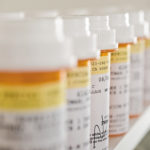Move Fast: FDA is Accepting Submissions for the Pilot Program Class for FDA Commissioner’s National Priority Voucher Program
 FDA is now accepting submissions to the Commissioner’s National Priority Voucher (CNPV) pilot program, and with only five vouchers to be awarded as part of the initial year of the program, the competition is anticipated to be fierce. It has been a little over a month since the FDA announced the CNPV pilot program, and the FDA has now provided additional information to help interested companies through the process and criteria for applying for these vouchers.
FDA is now accepting submissions to the Commissioner’s National Priority Voucher (CNPV) pilot program, and with only five vouchers to be awarded as part of the initial year of the program, the competition is anticipated to be fierce. It has been a little over a month since the FDA announced the CNPV pilot program, and the FDA has now provided additional information to help interested companies through the process and criteria for applying for these vouchers.
On June 17, 2025, the FDA announced that through the CNPV program, selected sponsors will receive non-transferable vouchers that can be redeemed for expedited review of their drug or biologic product candidates. The FDA touts the CNPV program as a “novel” priority program that “shortens [the agency’s] review time from approximately 10-12 months to 1-2 months following a sponsor’s final drug application submission.” The vouchers awarded through the program can be applied to drug or biologic product candidates in any area of medicine and will focus on companies that are aligned with the following national priorities:
- Addressing a health crisis in the US,
- Delivering more innovative cures for the American people,
- Increasing affordability,
- Addressing unmet public health needs, and
- Increasing domestic drug manufacturing as a national security issue.
In an update posted July 22, 2025, the FDA provided examples of each of the national priorities that could make a company or its drug candidate eligible for a CNPV voucher. Of notable interest to the rare disease community, FDA’s example for addressing a large unmet medical need specifically includes condition(s) that available therapies do not adequately diagnose or treat, “including drugs to treat or prevent rare diseases.”
Here are four things to know about the CNPV program, based on the information the FDA has provided thus far:
- Participation Process: Interested and eligible companies should submit a statement of interest to FDA through the CNPV Program Submission page. Interested companies can submit a maximum of one statement of interest each, although the FDA has indicated that vouchers can be granted for review of a specific drug or as an undesignated voucher, allowing a company to use the voucher for review of an application for a drug “at the company’s discretion subject to consistency with the program’s objectives.” The FDA will select companies based on the submitted statement of interest for “possible acceptance” into the pilot program. These statements are short—just 350 words or fewer—and should discuss one national priority the drug development program addresses and any specific issue(s) for which the company may be seeking enhanced communications with FDA to facilitate program development. If the program addresses more than one national priority, companies should identify the primary national priority in their statement of interest.
- Submission and Review Process: The CNPV program submissions will be evaluated by a senior, multi-disciplinary committee of experts, led by FDA’s Office of Chief Medical and Scientific Officer, and the committee will pre-review the submitted statements of interest and convene for a 1-day “tumor board style” meeting. The Commissioner’s YouTube announcement for the program explains that such meetings allows experts “to consider hard questions in light of all the latest clinical evidence,” and the CNPV committee plans to utilize a similar approach. Companies must be prepared to respond promptly to any FDA inquiries about their submission. FDA is accepting statements of interest on a rolling basis, and although there is not a specific deadline for submissions, we recommend that interested companies act with urgency in order to get considered for the initial pilot program class.
- CNPV Voucher Benefits: As highlighted by FDA, a CNPV voucher entitles the company holding it to enhanced communications and rolling review to allow for a shortened review time. The FDA plans to provide a limited number of vouchers to companies aligned with US national priorities. A non-transferable voucher issued by the FDA could either be directed at a specific product or awarded to a company as an “undesignated voucher” that the company could use for a new drug at its discretion and consistent with the CNPV program’s objectives. The FDA has published a frequently asked questions document, “FAQs: Commissioner’s National Priority Voucher Program,” and notes that this page will be updated regularly as questions arise.
- Alignment with President Trump’s Executive Order: Among the national priorities that the CNPV program seeks to advance is the goal to increase affordability of drugs and biologics, and that goal is a direct focus of President Trump’s May 12, 2025, Executive Order on drug pricing, signaling the Administration’s goal of “equalizing” prices among the United States and other developed countries throughout the world. Among other directives, the Executive Order directs FDA to contemplate approaches that may involve pricing (for example, examining whether case-by-case importation of products would be appropriate if manufacturers do not lower their prices or whether there may be some sort of action with respect to the product’s approval). See Goodwin Alert on the Most Favored Nation Drug Pricing Executive Order. Companies are paying attention. In just the last couple weeks, two large drug makers have announced direct-to-consumer programs to offer a low-cost option to patients.
If a company is selected as one of the five pilot participants in the initial year of the CNPV program, the FDA states that the “voucher process must be commenced within two years” after receipt of the CNPV, although we note that the current information provided by the Agency does not expressly state whether an NDA or BLA must be submitted within two years. Since the voucher can be applied to a product “at any stage of development,” we anticipate that this two-year timeframe may be an area where FDA will provide more clarity as it selects sponsors for the program.
We encourage interested stakeholders to reach out to a member of the Goodwin Life Sciences Regulatory and Compliance team for further questions or assistance with submitting a statement of interest for the CNPV program.
 On July 10, 2025, the U.S. Food and Drug Administration (FDA)
On July 10, 2025, the U.S. Food and Drug Administration (FDA)  On May 12, 2025, President Trump signed the most recent Executive Order on drug pricing,
On May 12, 2025, President Trump signed the most recent Executive Order on drug pricing,  On April 18, U.S. Food and Drug Administration (FDA) Commissioner Marty Makary
On April 18, U.S. Food and Drug Administration (FDA) Commissioner Marty Makary  On January 7, 2025, FDA announced the availability of a final guidance document titled “Communications From Firms to Health Care Providers Regarding Scientific Information on Unapproved Uses of Approved/Cleared Medical Products.” The
On January 7, 2025, FDA announced the availability of a final guidance document titled “Communications From Firms to Health Care Providers Regarding Scientific Information on Unapproved Uses of Approved/Cleared Medical Products.” The  On October 23, 2023, FDA announced the availability of a revised draft guidance titled “Communications From Firms to Health Care Providers Regarding Scientific Information on Unapproved Uses of Approved/Cleared Medical Products.” The draft guidance supersedes the agency’s 2014 draft guidance, “Distributing Scientific and Medical Publications on Unapproved New Uses,” and it provides more direction for industry on how information regarding unapproved uses of approved/cleared medical products can appropriately be shared with healthcare providers (HCPs).
On October 23, 2023, FDA announced the availability of a revised draft guidance titled “Communications From Firms to Health Care Providers Regarding Scientific Information on Unapproved Uses of Approved/Cleared Medical Products.” The draft guidance supersedes the agency’s 2014 draft guidance, “Distributing Scientific and Medical Publications on Unapproved New Uses,” and it provides more direction for industry on how information regarding unapproved uses of approved/cleared medical products can appropriately be shared with healthcare providers (HCPs). PhRMA, the pharmaceutical manufacturer trade association,
PhRMA, the pharmaceutical manufacturer trade association,  On May 19, 2021, the U.S. Food and Drug Administration (FDA) released an
On May 19, 2021, the U.S. Food and Drug Administration (FDA) released an  In this post, we discuss FDA’s conduct of inspections of manufacturing facilities for new drugs and biologics during the COVID-19 pandemic. These inspections, known as pre-approval and pre-licensure inspections (PAIs/PLIs, respectively), are performed to give FDA assurance that a manufacturing site named in a new drug or biologics license application is capable of manufacturing the product according to current good manufacturing practices (cGMPs) and producing the product at commercial scale.
In this post, we discuss FDA’s conduct of inspections of manufacturing facilities for new drugs and biologics during the COVID-19 pandemic. These inspections, known as pre-approval and pre-licensure inspections (PAIs/PLIs, respectively), are performed to give FDA assurance that a manufacturing site named in a new drug or biologics license application is capable of manufacturing the product according to current good manufacturing practices (cGMPs) and producing the product at commercial scale.